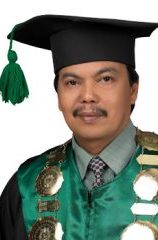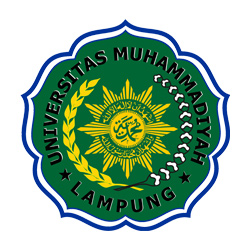In conversation with
Dr Agus Pahrudin M.Pd
Rector | Universitas Muhammadiyah Lampung

ASEAN Education Spotlight: For our Newsweek readers, what would you say is the current role of the university within your community and within the education sector of Indonesia?
Dr Agus Pahrudin, M. Pd: There are 300 state universities in Indonesia and 3500 private universities so that you have to stand out.
Our university is one of the biggest organisations in Indonesia that is active within the education sector, society and within the country’s religion. As Universitas Muhammadiyah Lampung (UML), we want to help make our community and teaching as balanced as possible and believe they must be.
What is your main philosophy and primary mission as UML here in south Sumatra?
Dr Agus Pahrudin, M. Pd: Our vision for Indonesia and Sumatra is to become one the best universities in the country by 2025. Our mission is to be a university based on Islamic values and change our global approach by becoming more international and focusing more on internationalisation.
As the rector of the university, re-elected twice, what are some of the strategies and goals you have regarding what you want to achieve?
Dr Agus Pahrudin, M. Pd: Since becoming rector, I have increased the number of study programmes at UML from five to 12.
The main strategy I have and that we are working on is to make UML an important player within society by meeting the goals of our vision and mission.
I want to meet our curriculum based on expanding our footprint within ASEAN to become more global. Globalisation, particularly with entrepreneurship in mind, is very important to us. We want our students to go into the ASEAN economies with the best possible education and the best possible entrepreneurial skills. We are preparing our students by increasing the number of entrepreneurial studies we have so they are prepared to excel within ASEAN.
We also want our students to take as many Islamic studies focusing on Muhammadiyah.
Religion and science are two very different schools of thoughts. Regarding education, how do you combine these two in one to work in harmony?
Dr Agus Pahrudin, M. Pd: We have a separated curriculum in every semester because it is difficult to combine the study of religion and the study of science into one. Much like it is difficult to combine the study of English and the study of Bahasa into one.
Each semester students will, for example, study English 1 and Bahasa 1 and the second semester English 2 and Bahasa 2. Or, to use another example, students will study Physics 1 and Islamic Studies one during the first semester and Physics 2 and Islamic Studies during the second semester.
Every single topic of study we have must be within our religious framework; this means that everything the students can study has to fall within what our religion believes. The lecturers themselves are required to study the topic they are teaching. For example, our English professor is studying English as well to better teach the subject.
We also believe in small classes, only 30 or 40 students per class.
How are you and the university addressing the current disconnect between education and industry in Indonesia and in Sumatra with your curriculum and what new industries and skills have you seen coming to the island?
Dr Agus Pahrudin, M. Pd: The curriculum must match and meet with what society needs. Therefore it is vital to us that students here are trained on campus and, importantly, within the industry itself before they graduate. For example, if they are studying education, they will train at a school before they can graduate.
We also emphasise technology, and we are very serious about our students using and learning to use computers and the internet. This is one way they can know what is going in the world, in Indonesia, in Sumatra and within their sector. They can learn from other people and other students in the field they are studying and see how they are progressing within their studies of it.
For Indonesia, the research from universities must be focused on Indonesia itself. How are you contributing to the vision of the ministry to focus research more on the country?
Dr Agus Pahrudin, M. Pd: There are many topics and aspects we have to take into account for our country and the research we can do.
Here at our university, we take many of those topics and aspects into account with the research we do. The ministry is right, the research from universities in Indonesia has to focus on the country, its religion, the communities and the problems we face.
However, if we want to improve our research, the findings of the current research and the existing communities should tell us what we need to focus on. This is not happening; people are talking a lot about the research possibilities and what it should focus on. However, the consensus among many of the Rectors is that there are more talking happening than action. The ministry is talking a lot but not taking the needed action themselves. Without that, the universities do not have a place of focus to start from.
The education sector – on all levels, especially universities, need to collaborate with the ministry to meet their vision of increasing research on Indonesia as a country. Only then will we be able to start the process and do the research that is needed and wanted.
Regarding ASEAN, how are you planning to increase internationalisation and connection within the new system?
Dr Agus Pahrudin, M. Pd: If you talk about the education system within ASEAN, it is important to know the standards have been raised. That is exactly what we have done here; we have raised the standard of our study programmes, lectures, and lecturers to an international standard. We did this to match the standards to those universities in Malaysia and Thailand.
We also have partnerships and planned partnerships with many international universities, including those from Malaysia, Thailand, Turkey, Britain, and Australia. All the Muhammadiyah institutions in Indonesia are partnered and we want to expand our local partnership even more.
What is your vision for the university and the campus in the next 10 years?
Dr Agus Pahrudin, M. Pd: I want this to be the biggest campus on the island, and one of the biggest in Indonesia. In 2018 we are planning to expand the campus with three more buildings, which are in progress.
We are also building a second campus, and we are planning to expand our faculty – which has five faculties – with more, such as a pharmacy, fishery, a farming and, possibly, a doctoral faculty.
